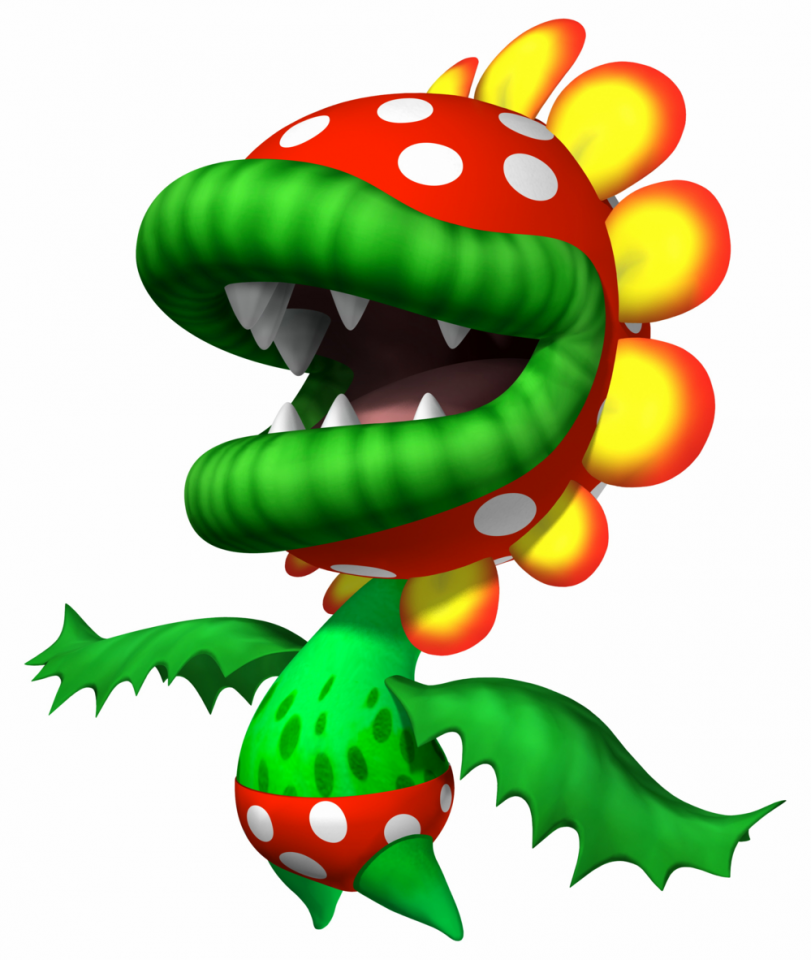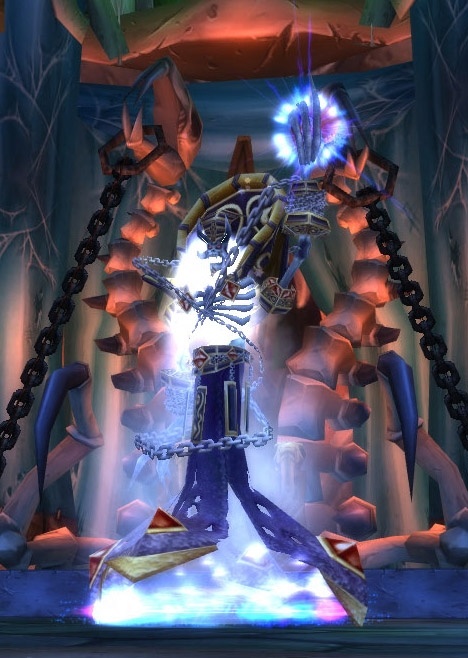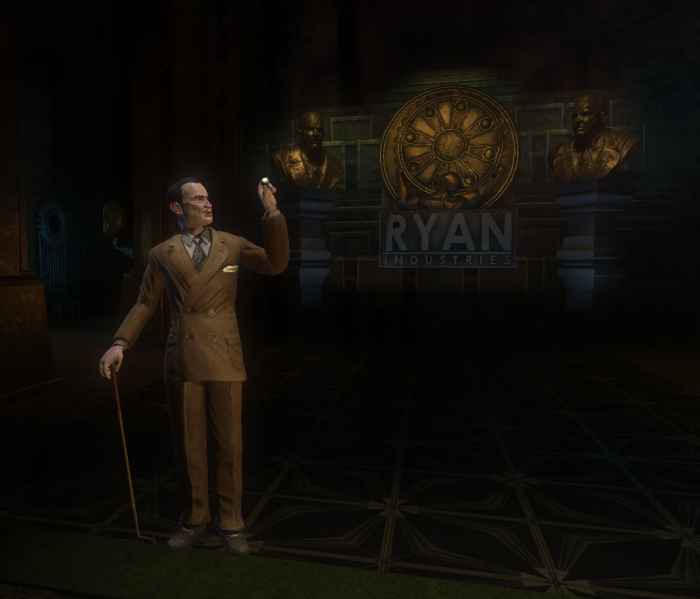What makes a successful videogame Boss?
By sweep 51 Comments
Where to begin?
More importantly, where to end?University huh? So that's a bitch.
Fortunately I love my degree, so it's not all bad. I'm actually working on a research project right now which I have chosen to title "The implementation, successes and failures of "Boss" design and encounters in Videogames". Catchy, ain't it.Where to begin?
Bosses are a natural convention for videogames, a medium which is as much about timing and reflexes as it is logic and rational thought. The idea of a "boss" is traditionally a peak in the difficulty of a game, marking the end of a chapter or level - that the player must vanquish before they may continue. Bosses are also, conceivably, a huge failure, often dumped in an interactive adventure because... well... it's a videogame, and videogames have bosses, right? This is insufferably apparent amongst the "I'm the same as all the other guys you just fought but I have a bigger health bar" menagerie of bosses that reek of laziness and demonstrate the imagination of damp cardboard.An alternative is for bosses to gain notoriety by simply being awkwardly difficult. Seth, the final monstrosity one must wrestle in Street Fighter 4 is an example of an enemy that simply bends the rules to his advantage. Instead of being praised for clever design, he is more often than not the target of resentment for being a cheating mother fucker. This is by no means a sign of bad boss design, however, as the satisfaction at his inevitable demise is all the sweeter having beaten him despite his obvious home advantage.


And that's about it.
Except it's not, really, is it? For many interactive titles simply pointing you at the bad guy and issuing the "kill" order isn't enough. You need incentive, which comes in a variety of flavours. The most obvious would be through empathy with your own character, your Commander Shepard or Nathan Drake. It's a lot easier to sympathise with their often destructive behavior having shared their sense of betrayal or manipulation earlier in the story. It also helps if your character is somehow entertaining to watch, be it the stoic resilience of Master Chief or the comedic charms of Super Meat Boy.
There are exceptions to the rule, Mario being the obvious example - what is lost in ambiguity is compensated for in charm and innovative design. Similarly Shadow Of The Colossus requires little introduction other than "You have to kill these giant monsters to save this girl" - the incentive to destroy these enemies being that it is mechanically enjoyable to do so. In the latter example, the ambiguity is almost part of the charm, leaving the player with a foreign uncertainty that is quite unique. This is some fairly masterful manipulation of the genre, deliberately limiting instruction to the player to heighten that sense of unease. Unfortunately there are endless examples of games that don't quite understand these ideas, offering enemies that are immediately forgettable and lacking any real design as a unique opponent - the design stemming from clever programming and art assets instead of gripping narrative.

Some games actively forgo the predefined character route either by nature of a silent protagonist, or allowing the player an extreme level of control over their avatar - much in the way of Dragon Age: Origins where the player directly chooses their response throughout the entirety of the game. Personally I find the resulting level of empathy with a character is heightened as a result - my avatar becoming a much more personal extension of my own personality. If someone insults you in World Of Warcraft, for example, they are insulting you, not your level 29 Troll Shaman. This style of design is also much more dependent on the narrative. As the game cannot impose a sense of anger or hatred upon you, it must develop it manually through the experiences in which you are placed. Failure to do so successfully can result in a hugely underwhelming results, as with the Elder Scrolls:Oblivion where the actual storyline was dull, repetitive and riddled with bland characters which I was supposed to like or respect. Having conquered the final boss I was in no way elated, not caring for the kingdom which I had supposedly saved. The resultant charms from that game stemmed from the freedom the player was granted in exploring the huge and surprisingly vibrant world, carving out their own adventure and gaining a much deeper satisfaction as a result. This sense of achievement is vital, a fundamental feature of the entire medium that must be satisfied as a matter of urgency. Closure must be attained one way or another. With our World Of Warcraft example, this sense of achievement is gained through bragging rights, the ability to demonstrate you have mastered your class and role, and visually flaunt your skill through the shiny new loot you just received. The actual empathy the player has with the enemies they fight has been minimised to an almost mathematic level as a result - with players essentially working robotically and without interest in their attempts to out-maneuverer what has been degenerated to a colourful algorithm. Which is a shame, because that narrative incentive is available, it is just largely ignored.

Where to begin?
This is all at odds with the fact that most bosses as entirely separate entities are predominantly uninspired. As Greg Kasavin pointed out on his blog, it's often the enemies you fight that share the greatest level of empathy with the player, usually because they are the characters to which you are most excessively exposed - which is why their somewhat lacking and repetitive design is such a huge lamentation to game enthusiasts worldwide. Bioshock, an absolutely superb game in many regards, develops a series of characters that are so successfully fleshed out that they complete the world they inhabit. Andrew Ryan, your supposed nemesis, is a character to which one ultimately becomes sympathetic throughout the course of your tour of Rapture. Similarly, Sander Cohen is so delightfully sadistic that it's almost a shame when one eventually clubs him to death with a wrench. These are examples of bosses that are nurtured and cultivated throughout a game, developed of a period of time, in which the player is given an opportunity to form a relationship with their enemy and their own inclinations at vengeance. These characters are by no means more powerful than the hordes one must battle to reach them, but they are given life through rich character design, and a stage upon which to flaunt it, making the journey the player must undertake infinitely more meaningful as a direct result. A stark contrast from the anonymous nature of the villains in the Mushroom Kingdom.
It's therefore deeply disappointing that the final encounter in Bioshock is so stereotypically labored, bearing more resemblance to Seth from Street Fighter than to the tailored delicacy and tact of it's own cast of alternatives - the ultimate showdown being reduced to nothing more than an unsatisfying ammo-sponge. Such a wasted opportunity, considering how thoroughly well realised the character was and how heavily empathetic one felt as a direct result at the core sense of manipulation.
Where to end?
Uh... here I guess.So yeah, that's the sort of thing i'm going to be exploring and researching over the next two or three weeks. Bosses in videogames are a convention that is endlessly recycled and rarely successful. If anyone has any thoughts on why that may be, opposing opinions as to what makes bosses great, or even just fantastic enemies they have had the pleasure of battling personally - I would love to hear them.
I... woah. This feels like one of my blogs from 2009. It's freaking me out a little bit. Anyways.
Thanks For Reading
Love Sweep
